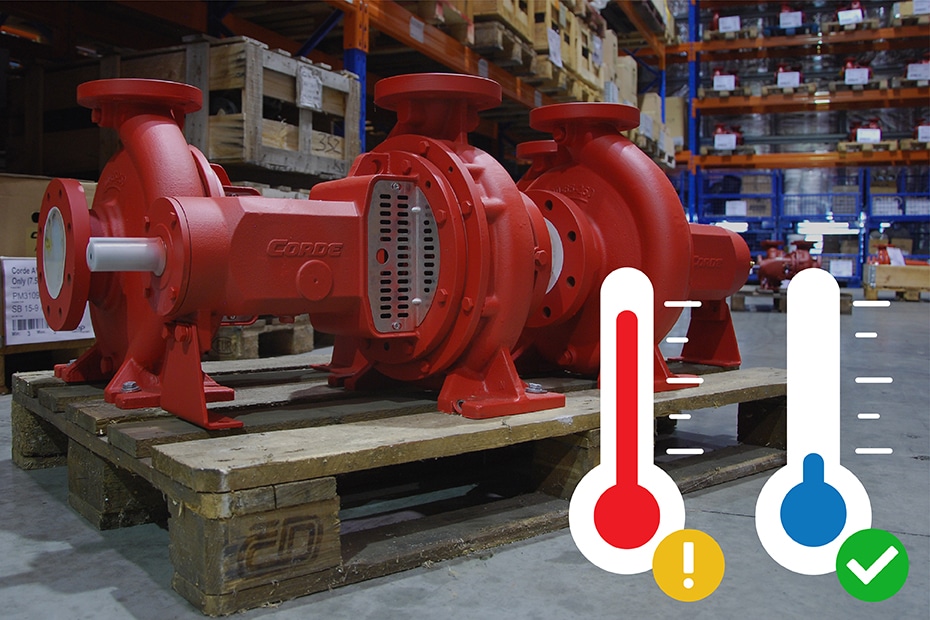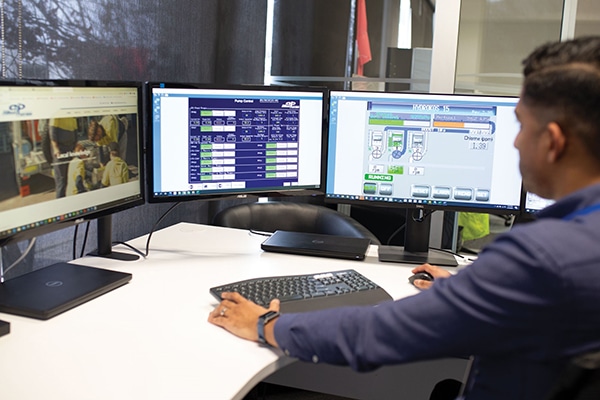
In mining and industrial applications, extreme temperatures can significantly impact a pump’s performance and longevity. In this article, we’ll explore why managing operating temperature matters, the factors influencing it, and how to ensure your pump maintains optimal temperature in demanding conditions.
Overheating is one of the biggest risks in mining and industrial pump applications. Excessive heat can cause thermal expansion, leading to misalignment, increased wear, and potential damage to critical components. If left unchecked, overheating can result in costly repairs and unplanned downtime.
Maintaining the correct operating temperature is also essential for ensuring pump efficiency and longevity. When pumps run within their designed temperature range, components such as bearings, seals, and impellers experience less stress, reducing the risk of premature failure. This not only extends the lifespan of the pump but also minimizes maintenance costs over time.
Another key concern is pump cavitation, which occurs when temperature fluctuations cause vapor bubbles to form in the pump. These bubbles collapse with force, potentially damaging impellers and other internal components. High temperatures can also degrade seals, leading to leaks and operational inefficiencies.
Different fluids have unique thermal properties that can impact heat generation and dissipation within the pump. Water, for example, generally has a lower impact on temperature fluctuations compared to chemicals or slurries. This is because highly viscous fluids generate more friction, leading to increased heat buildup. Additionally, corrosive or abrasive materials (such as acidic solutions or mineral-laden slurry) can cause wear on pump components, affecting their ability to dissipate heat effectively.
Mining operations in remote Australian locations often face extreme heat, with temperatures soaring above 40°C in some regions. Enclosed industrial environments can also trap heat, making it difficult for pumps to cool efficiently. Additionally, inadequate ventilation can also exacerbate heat buildup, leading to overheating and potential equipment failure.
Some metals, such as stainless steel and high-grade alloys, offer better heat resistance than standard materials. The type of pump design and factors like seal materials and operating pressure, also impact heat dissipation. In the next section we will explore how to select the best pump based on these considerations.

For high-temperature applications, materials such as stainless steel, bronze, or specialized heat-resistant alloys are preferred due to their superior thermal stability. In some cases, pumps are coated with ceramic linings or polymer coatings to provide additional heat resistance and corrosion protection.
Different pump designs also offer varying levels of heat resistance and dissipation capabilities. Centrifugal pumps are commonly used in industrial and mining applications because they effectively move large volumes of fluid while minimizing heat buildup. However, when dealing with high-viscosity or high-temperature fluids, positive displacement pumps may be better suited. This is because they provide consistent flow rates and are often designed with built-in cooling mechanisms.
The selection of elastomers for seals and gaskets is another crucial step. Standard rubber or elastomer seals can degrade quickly under high temperatures, leading to leaks and inefficiencies. Advanced designs use temperature-resistant materials such as PTFE (Teflon) or mechanical seals with cooling features to prevent heat-related failures. Some pump designs even include dual-seal configurations with external cooling systems to further regulate temperature.
Lastly, pumps running at high pressures experience greater mechanical stress, leading to increased friction and heat buildup. Selecting a pump with a sufficient capacity margin ensures it is not constantly running at its maximum limit. Additionally, Variable Frequency Drives (VFDs) can help manage temperature by adjusting motor speed based on demand.
Heat exchangers are commonly used to transfer excess heat away from the pump by circulating coolant or air around critical components. This prevents overheating and extends the lifespan of bearings, seals, and motor windings.
External cooling loops provide additional temperature control by continuously circulating cooling fluids around the pump casing or bearings. These systems are particularly beneficial in enclosed industrial settings or in mining operations where ambient temperatures can exceed safe operating limits. Some pumps also feature fan-cooled motor housings or finned casings to enhance natural heat dissipation.
Over time, factors such as worn bearings, degraded seals, or clogged cooling systems can lead to rising temperatures and decreased efficiency. Implementing a proactive maintenance schedule helps identify and address potential issues before they escalate.
Temperature sensors and thermal imaging cameras can be used to monitor real-time pump temperatures, allowing operators to detect overheating early and take corrective action. Advanced monitoring systems can also integrate with automated controls, triggering alerts or adjustments when temperatures exceed safe thresholds. At Allied Pumps, we offer our very own NODEM Remote Monitoring system.

At Allied Pumps, we understand the unique challenges of Australian mining and industrial environments. For over 30 years we have been providing tailored solutions for extreme conditions like those found in the harsh Pilbara region.
With a focus on efficiency and durability, Allied Pumps provides expert advice, custom designs, and manufacturing of high-performance pump systems. Contact our team today or explore our range of mining products and industrial pumps.

Contact us to learn about how we can help you with your pump needs.
CALL US NOW EMAIL US